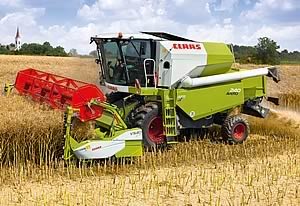 |
|||||||||
|
|||||||||||||||||||
|
|
Farmers Forced to Choose Between Food and Fuel 2010-03-02 “The EU drive towards more energy from renewables is going to be a double edged sword for the food and farming industry in the North East.“ This was the view of the expert panel which lead a recent breakfast debate hosted by the EFFP (English Food & Farming Partnership) and supported by One NorthEast at the Sage Gateshead.
While farmers may benefit from generous subsidies by growing biofuel crops, the food industry may be left with restricted supplies of highly priced wheat. The way to devise strategies to cope with this potential conflict was the subject of much discussion by the North East farmers, grain cooperatives, processors and food companies who attended. The debate with the question, 'Will your raw material be in short supply due to the drive for renewable energy?” posed by Dr Jeremy Tomkinson, Chief Executive of the National Non-Food Crop Centre. Jeremy who has a background specialising in the chemistry of renewable materials is using this experience at the NNFCC (the UK's national centre for renewable fuels, materials and technologies) to build sustainable supply chains from plant based materials from feedstock through to manufacturers and the end consumers. In his overview of the likely impact of biofuels and biomass developments in northern England, Dr. Tomkinson was very clear that that the government’s target to produce 15% of the UK’s energy from renewable sources by 2020 is set in stone. Doing nothing is simply not an option. The 15% national UK target, which also includes a number of interim targets, has been fixed to comply with the EU’s mandatory target that by 2020, 20% of energy must come from renewable sources. Consequently the subsidies to farmers to grow crops that can be used in biomass production will be very attractive. Indeed the North East’s biofuel industry is already rapidly expanding, with two large scale bioethanol plants due to come on stream in Teeside and Humberside. The combined demand for these plants and from an existing starch plant in Manchester will be in the region of three million tonnes of wheat a year. Businesses are already aware that they will need to look at the way they create their own fuels. They will also be encouraged by these extremely generous subsidies to grow the cheaper grade wheat used in ethanol production. Currently the North East produces only two million tonnes of combinable crops a year. Combined with legislation to actively encourage other sources of renewable energy such as AD (Anaerobic Digestion), it seems highly likely there will be severe pressure on feedstock, food crops and the land on which to grow them. At the same time the world’s growing population will give rise to an increased demand for food and we will see new markets opening up. Farmers know that they will have to walk a line between growing crops for food or for fuel both of which will offer economic benefits. Consequently the food and farming industry are going to have an increasingly important role to play in the economy. Summarising the debate, Siôn Roberts, Chief Executive of EFFP commented, “Security of supply is becoming a real concern for the food industry but this needs to be balanced against the needs to address climate change and global sustainability. Farmers and producers know they need to adapt and the purpose of this discussion is to develop potential solutions to mitigate the negative impacts on the food industry. Food and farming will be stronger if they work together and we need an agreed set of objectives throughout the supply chain.” Anyone interested in finding out more about how they could be affected by the issues raised can contact EFFP on Tel. 020 7248 3589 or info@effp.com
|
||||||||||||||||||

|
|
||||||||||||||||||
| home | agri-services | pedigree
pen | news | dairy | beef | machinery property | organisations | site map |
|||||||||||||||||||

